Breaking the Code: Patryk's Quality Assurance Career Journey
Since college, Patryk knew that writing code wasn’t for him. But breaking it? That was a different story. In this interview, he shares why he chose to become a QA Engineer, whether he’s worried about AI taking over his job, and why you probably shouldn’t offer him a tomato.
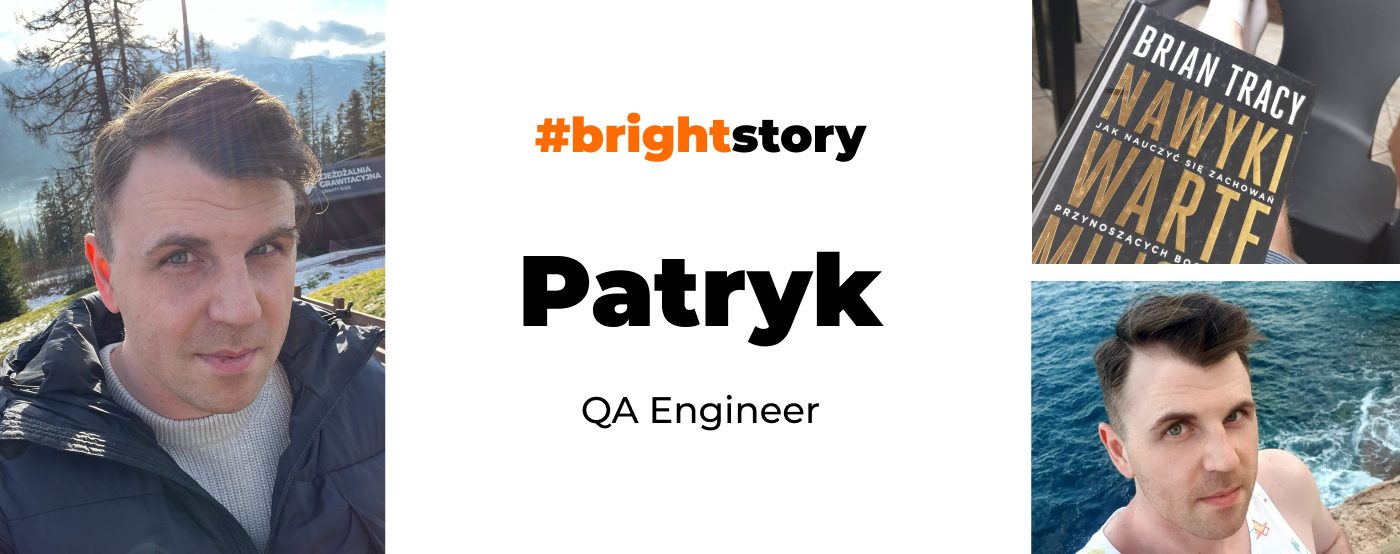
How did you land in the software development industry?
It all started in technical school. I enrolled in a computer science class and earned a degree as an IT Technician. The reason I chose that path seemed simple at the time – I liked playing computer games, so I figured computer science must be related to that. That was a common assumption back then.
At school, our teachers were very enthusiastic and encouraging. They kept telling us that IT was the future, and their passion got me excited to pursue computer science at the college level as well.
Now, people usually ask me: “If you studied computer science, why did you end up in quality assurance instead of software development?” 😄
Yes, one really wonders – why did you choose the QA path?
Even during college, I noticed that our academic teachers didn’t really focus on why something works or doesn’t work. They just told us to write pieces of code from a template, without even checking if it actually worked or not.
But I wanted to do the opposite – I wanted to break things and understand why they broke. 😄 I was always the one asking, “What’s behind the code we’re writing?” – and I don’t think the academics appreciated that very much.
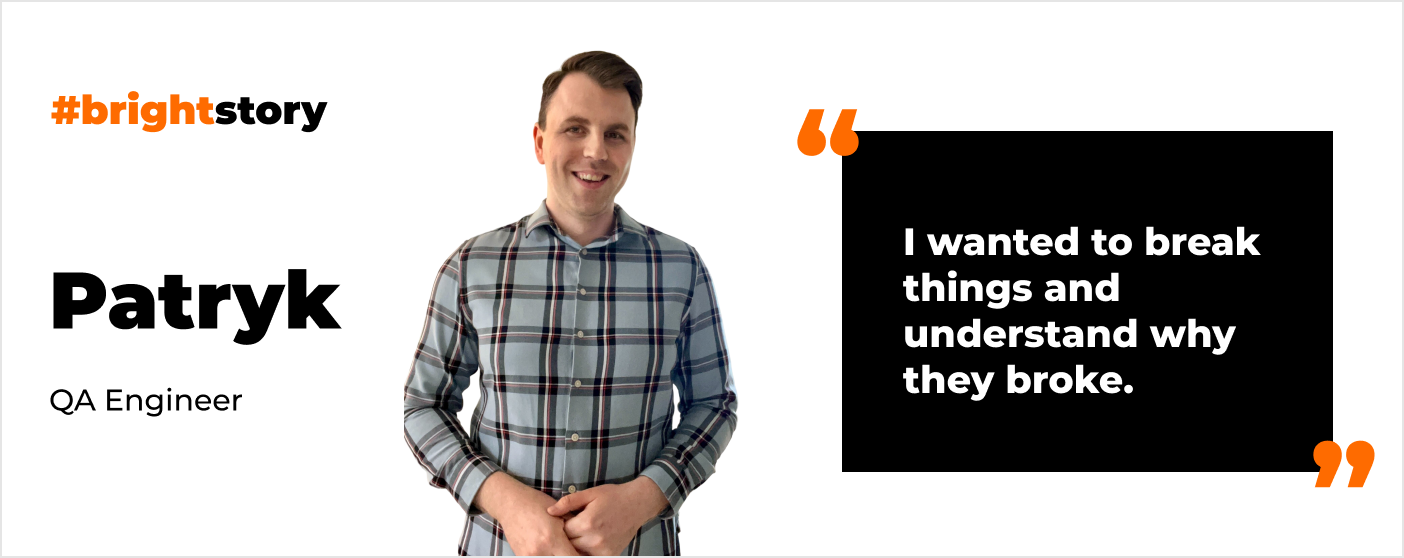
It’s definitely something subjective, but programming felt a bit tedious to me (sorry, my dear colleagues). I feel more connected to the product, the business side, and the end users as a QA. I also feel like I can have more influence there.
How do you explain to your grandparents what it is you do at work?
Oh, it’s rather difficult – my grandma can’t even fully understand that I talk to people on camera for work, and that I do it from home.
My family knows I do something related to computers. I try to explain it by saying they have apps on their phones, and those apps are built by companies like the one I work for. My role is to test the quality of those apps.
These days, they ask less and less about my job – I think it just feels too abstract or hard to grasp for them. But I know they’re proud of me anyway, because I’m the first engineer in our family.
You used to work on projects in the banking sector. How does that experience affect your work?
In banking, the app might have seemed simple on the surface, but there were many things happening behind the scenes that could go wrong. Even the smallest calculation error can significantly affect the user experience. Working on those kinds of projects made me much more detail-oriented. That also taught me how important it is to understand the end user and to simulate their actions as realistically as possible.
There’s this constant, quiet pressure in the banking sector because even a small bug can ruin an entire release. I think that’s a good kind of pressure though. It shapes your mindset as a QA.
You also had a startup adventure in your career. How do you look back on that experience?
Working with startups has a lot of advantages, especially when you’re involved in a really interesting business idea that you genuinely feel has the potential to scale and grow.
However, in some cases, startup founders face challenges like not fully knowing their clients or end users yet, because they’re still in the discovery phase. For me as a QA, understanding who the end user is (so I can simulate their journey through our solution) is absolutely crucial.
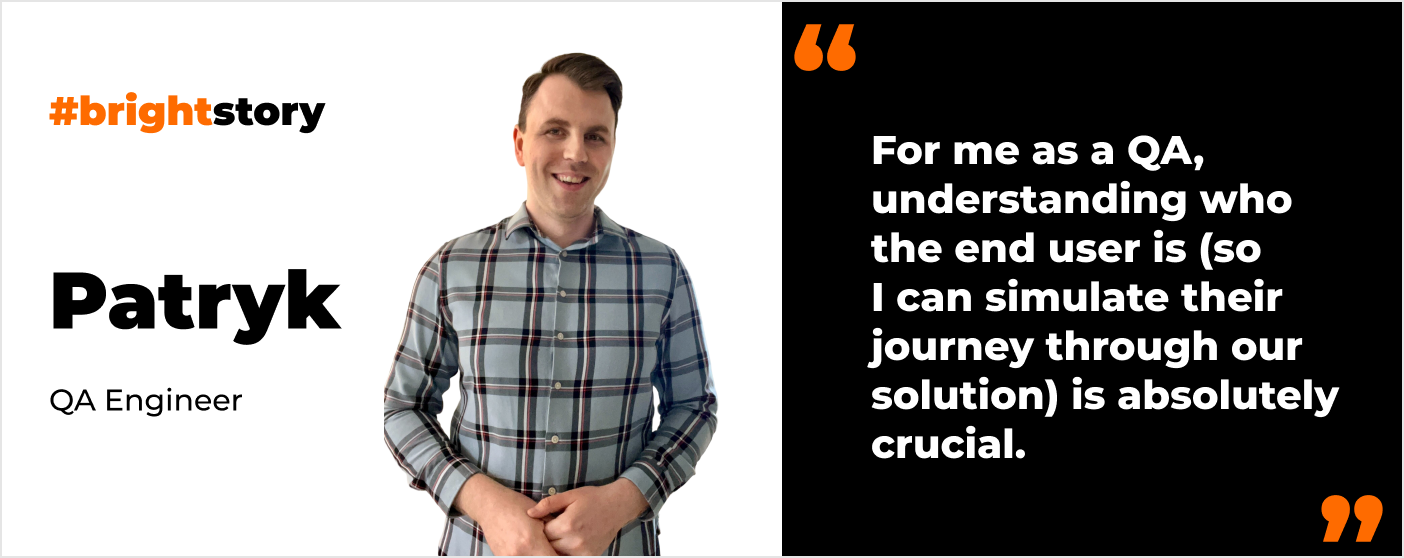
That meant I had to work very closely with the business side to understand users and client requirements as well as possible. And in a startup environment, those things can change quite often, so adaptability was key.
How do you see yourself as a QA in the midst of the AI revolution?
I’m still a bit cautious when it comes to using AI in software testing. The human factor is still very important. Even if you use AI for automated testing, you still need to verify whether the AI agents actually understand user needs and truly grasp the business domain.
That said, AI is definitely helpful for things like writing documentation and verifying errors. When I encounter bugs during testing, AI can often help me find solutions faster.
I’m not worried about AI replacing me, human review is still essential.
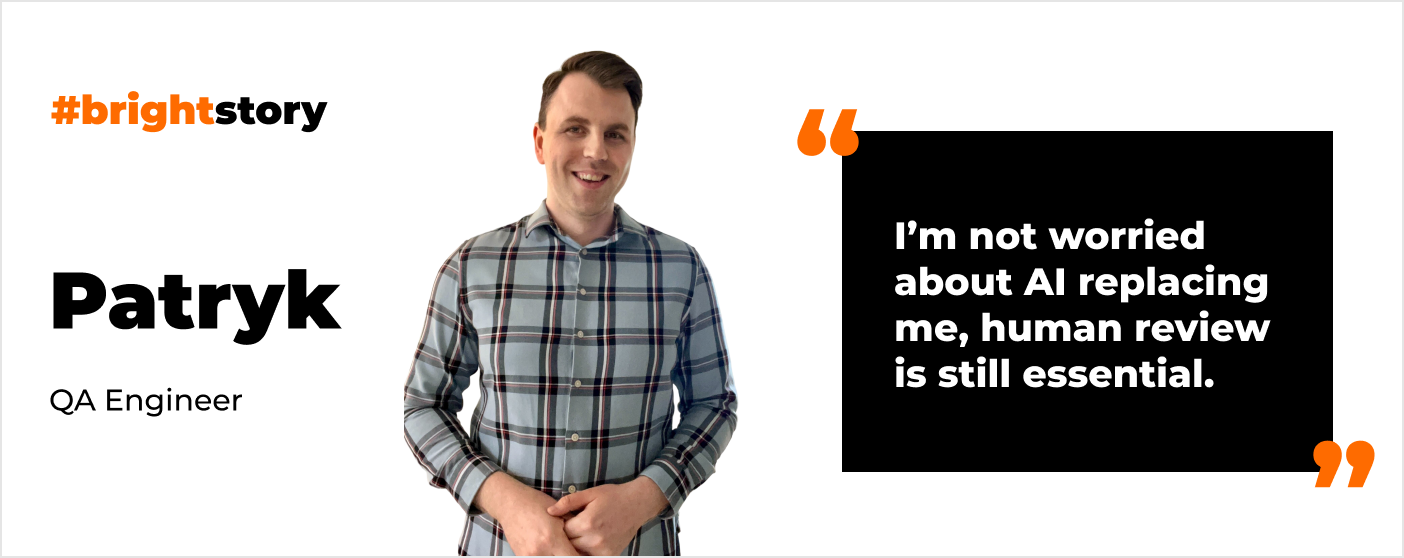
You started working at Bright Inventions a year ago. How do you recall that time?
I truly enjoy the fact that it’s not a huge company, that’s exactly what I was looking for. In bigger organizations, I sometimes felt more like a resource than a team member. Here, I really feel like part of the team.
I’m still amazed by how many people actually know each other. You can see it even on Slack – how they tease each other and joke around, you can tell these are long-term relationships, not just colleagues who work together.
And I’ll never forget when I was considering Bright Inventions and visited the website – I saw that every team member had their own profile page with a photo and bio. That made a big impression on me. It showed that people truly matter here, they’re treated like humans, not just assets.
What is special about the software project you're currently part of?
We’re delivering a mobile and web application for a global humanitarian organization that fights hunger supporting people in some of the world’s poorest and most conflict-affected regions. Everyone on the team truly feels that we’re doing something that drives real change and helps people in their everyday lives.
The system we’re building supports the distribution of payment instruments (like cards, SIM cards, and vouchers) which allow people in crisis to purchase essential goods. We feel the impact of our work, especially when we receive updates and photos showing how our app helps beneficiaries access food and hygiene products for their families.
We’re continuously expanding the number of countries where this technology is used and that makes me genuinely proud. Of course, I wish we lived in a world where apps like this weren’t needed but we all know that’s not the case.
I know you’re not a fan of tomatoes. What did they ever do to you? 😉
It’s the texture, it’s just disgusting! I call them rotten apples. When I see someone slicing a tomato, I literally have to turn away, that’s not a sight I want to witness.
I’ve always been like that. The funny thing is, I actually like ketchup, and I’m okay with tomato soup, as long as there’s no pulp in it.
And what do you do after hours?
Well, I’ve recently become a dog dad to a Border Collie and it’s intense! Having a puppy really keeps me on my toes. We walk a lot, and honestly, it’s already building better stamina than me, so I’m trying to catch up. I’m also planning to get back to the gym – hopefully that helps!
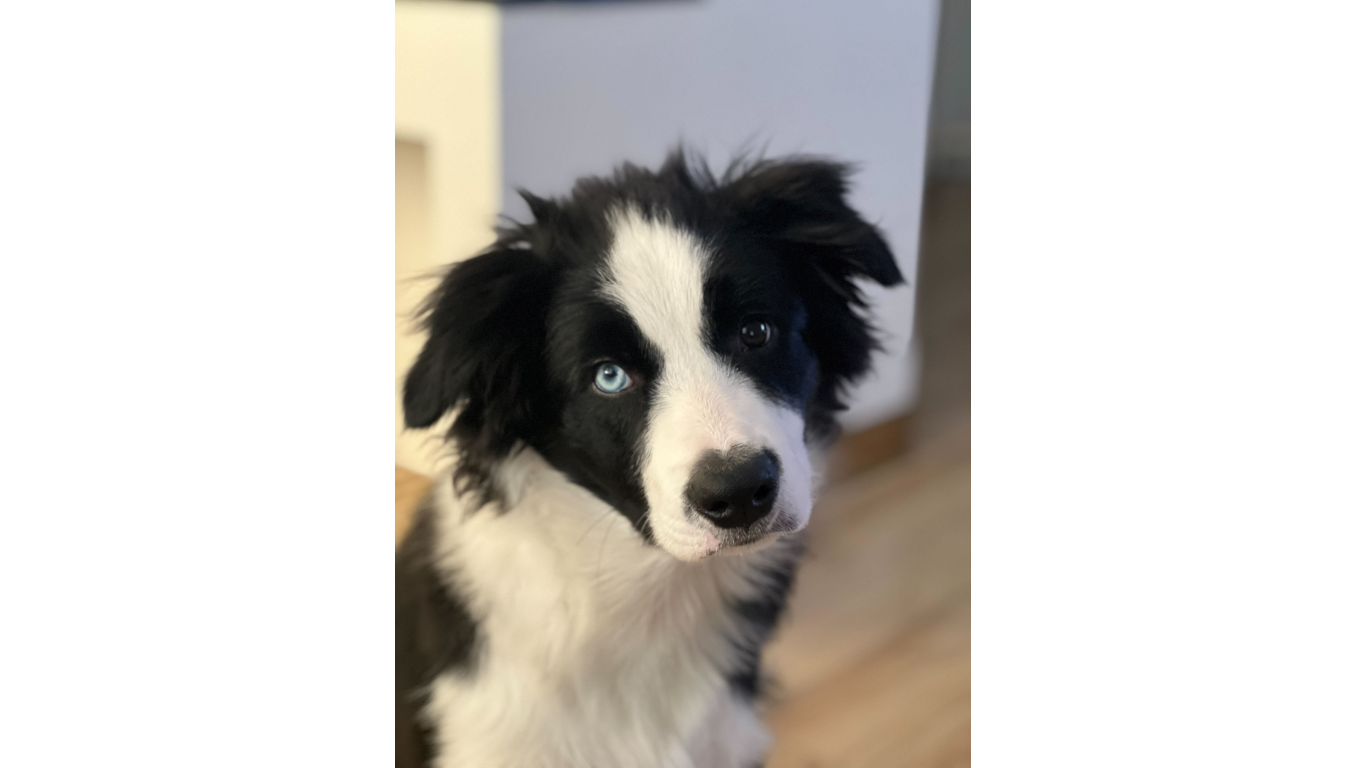
Aside from that, I’m a bit of a romantic musician type – just me and my guitar. I really enjoy playing, though my puppy isn’t the biggest fan of my performances.
Do you write songs?
Yes, I’ve written some music over the years, but I was never a singer, so I always had to find someone else to perform. I played in a few bands during school, but it never turned into anything more serious.
Still, the guitar has always been a big part of my life. It’s just something that’s stayed with me.

